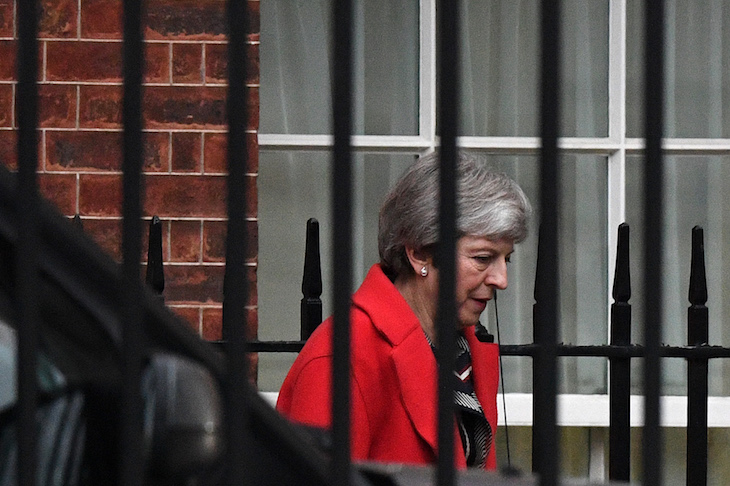It only took a few lines of Theresa May’s statement to the House of Commons on her Brexit deal before MPs started making dissenting noises all around her. The Prime Minister started by listing the ways in which the deal ‘takes back control’ for the British people, telling MPs that this included control of Britain’s borders, ending the jurisdiction of the European Court of Justice, an end to ‘vast annual payments we send to Brussels’, protecting jobs through a new Free Trade Area, protecting the country’s security and maintaining ‘the integrity of our United Kingdom, meeting our commitments in Northern Ireland and delivering for the whole UK family, including our Overseas Territories’. The head-shaking and disagreeing started from that first assertion about border control, and continued throughout the list. And it came from the benches behind the Prime Minister, as well as from opposition MPs.
The line in her statement that will attract the most opposition from her own party over the next few weeks followed shortly afterwards: the Prime Minister insisted that the backstop ‘is an insurance policy that no-one wants to use’. She referred to those who ‘remain concerned that we could find ourselves stuck in this backstop’, and argued that the Withdrawal Agreement contains a legal duty for both sides to ‘use best endeavours to avoid the backstop ever coming into force’ and that it would be a temporary, rather than permanent measure. This still doesn’t answer the concerns of those who point out that there is still a difference between something being indefinitely temporary and the permanent state that Number 10 has ruled out, or indeed those who want the UK to be able to remove itself from the backstop unilaterally.
May is largely focusing on speaking to the country over the next few weeks, believing that this will lead to pressure from constituents on their MPs to change their vote and support the deal. But today she also set out the squeeze message she will be using with her own party as she tries to win a vote on Brexit (if not the first one that is brought to Parliament). The Prime Minister insisted ‘with absolutely certainty that there is not a better deal available’, and warned that rejecting the deal would take things ‘back to square one’ and ‘open the door to more division and more uncertainty, with all the risks that will entail’. Her challenge is to convince her own MPs that the chaos that she predicts will actually be worse than the consequences of the deal she has agreed. Currently, a large number of them disagree.







Comments